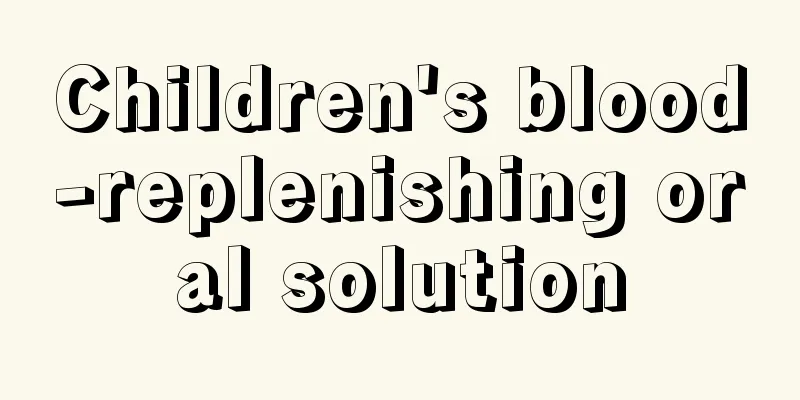Why does the baby sweat when drinking milk?

|
In the newborn stage, breastfeeding is a must to help the newborn supplement nutrition and maintain vital signs. Usually, some babies will sweat when drinking milk. Therefore, if the baby has symptoms of sweating when drinking milk, parents must first find out the cause of sweating. So, why does the baby sweat when drinking milk? Infants and young children have an active metabolism and are active and lively. Some of them cannot rest even after going to bed at night, so they may sweat on their heads after falling asleep. Drinking milk, malted milk or eating chocolate before going to bed may also cause sweating in children. Some parents give their children milk, malted milk, etc. before they go to sleep. After the child falls asleep, the body produces a large amount of heat, which is mainly dissipated through sweating through the skin. In addition, too high room temperature or excessive warmth can also cause children to sweat while sleeping, which are all physiological sweating. The skin of infants and young children contains a large amount of water and is rich in capillaries, so the amount of water that evaporates through the skin is relatively more. In addition, infants and young children are lively and active, so they naturally sweat more than adults. In addition, factors such as wearing too many clothes, covering with too thick blankets, and too high or too low room temperature can also cause children to sweat excessively. Because the baby's brain and nervous system is not yet fully developed and is in a period of growth and development, the body's metabolism is very active. Coupled with the stimulation of overheating (breastfeeding - exercise + eating - food itself will add heat to the body), the baby can only regulate normal body temperature by sweating to evaporate the heat in the body. This is what is called physiological hyperhidrosis. The sweat glands in other parts of the baby's body except the head are not fully developed, so sweating is usually concentrated in the head and neck. Babies sweating while feeding is not always a symptom of physical weakness or illness. Many parents believe that their children’s constant sweating is due to their weak constitution. In fact, a considerable number of children suffer from physiological hyperhidrosis. Physiological hyperhidrosis usually means that the child is well-developed and healthy, so there is no need to worry. The criterion for measuring whether the baby has a disease cannot be simply the amount of sweating. The main thing to consider is whether the baby's sweating is accompanied by other symptoms and discomfort. As mentioned above, if a baby sweats after drinking milk, some babies sweat because of weak constitution or certain diseases, while some babies sweat because of high room temperature or excessive warmth. Therefore, parents must pay more attention to the situation of babies sweating after drinking milk. |
<<: What to do if your baby sweats on his head
>>: What are the causes of infant nodding spasms?
Recommend
Treatment of baby spitting up during the confinement period
The birth of every new life will make our parents...
Children's tongue coating is white and they cough and have phlegm
Children's coughs are very worrying for paren...
Is cupping good for children?
Everyone knows that cupping is a common Chinese m...
What to do if a 6-year-old child refuses to eat
Six-year-old children have already started to stu...
What are the symptoms of a baby growth spurt?
Before the baby is two years old, the body will e...
What should I do if my child has bad breath due to internal heat?
In real life, it is a common situation for many p...
Is it okay for children to use teething sticks?
We all know that many mothers will buy some teeth...
The child sweats on his head but not on his body
In fact, we don’t take sweating too seriously. Be...
The child has a fishy smell
After a baby is born, his immunity is relatively ...
What should I do if my baby feels nauseous and spits up?
Spitting up is a common phenomenon in babies and ...
What is the cause of juvenile granulosa cell tumor?
Once it is related to tumors, it is considered ba...
Can a nine-month-old baby eat shrimp?
Shrimp has delicious meat and is a kind of seafoo...
My baby always poops hard and his face turns red
Many parents will find that their babies always h...
How to easily treat sore throat in children?
It is common for children to have sore throats. I...
How to treat constipation in a five-year-old child
If a five-year-old child is constipated, parents ...









